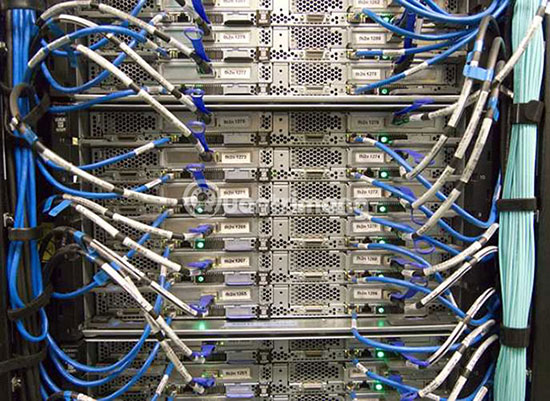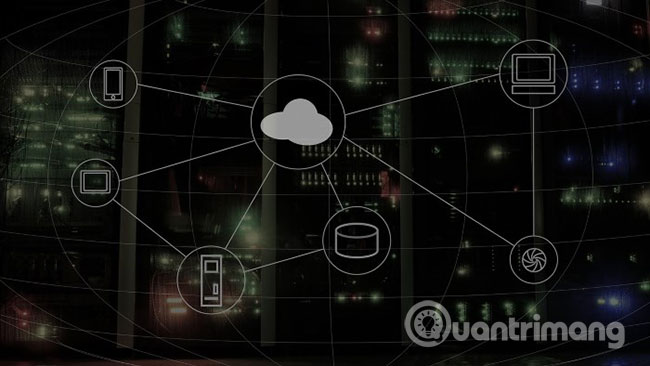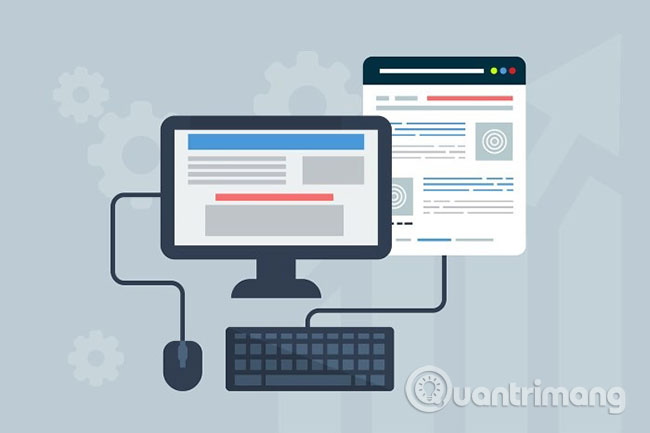What is Serverless Computing?
As we enter a world increasingly connected to the Internet, we will gradually see growth in the digital space, which helps people set up and run websites. One of the ways to develop this space is 'serverless computing'. Serverless computing is a means for developers to set up web-based services without any pressure like running a server.
In today's article, let's find out what Serverless computing is, and how to benefit.
Learn about Serverless Computing
- What is serverless computing?
- But isn't the cloud made up of servers?
- What benefits do Serverless computing bring?
- How does Serverless computing work?
- How to use serverless computing
What is serverless computing?

In the world where every person, every company and every service needs a website, web hosting needs to create a website that creates little pressure for users as possible. This is also the goal of serverless computing. By eliminating the server, users are less likely to worry when setting up their digital space.
Serverless computing does this by storing web pages in the cloud. This allows the server to customize the amount of resources that go into the site, allowing it to adapt to the needs of the client. Site creators no longer have to worry about setting up the server. Just create the website and let the cloud handle the rest.
But isn't the cloud made up of servers?

You may have noticed a strange thing in the past: Serverless computing requires the cloud to work. However, on the network, 'cloud' is a term referring to many servers connected to the Internet. So isn't serverless computing completely eliminating the server? This is why the name "serverless computing" is not very suitable for this service, since there is definitely a server that works in the background.
The concept of "serverless" here simply eliminates the server setup requirements for users. In this way, customers still experience a service without a server, despite the fact that servers are still heavily used to host websites.
What benefits do Serverless computing bring?

The main advantage that serverless computing brings is that it attracts less tech savvy customers but still needs to host the website. Serverless computing eliminates the need to manually adjust settings on the server, so customers can immediately access their website and pay only for what they are using.
However, serverless computing has an additional benefit for both customers and servers. How serverless computing works allows customers to pay for what they use. For example, you want to host the server for a game to play with friends. According to the old model, you will have to pay a monthly fee to hire a server.
However, under this cloud-based platform, you use the server to play games and pay only for the resources you use in the cloud. That means you only pay when you use the server.
How does Serverless computing work?
If you sign up for an option that doesn't have a server when you want to host a website, what happens on the other side, where your site is allowed to be hosted?
As the article discussed above, serverless computing will eliminate server management from users. This means that the server must calculate parameters such as storage space and memory itself (called 'Function-as-a-Service' or 'FaaS' ). When the cloud receives the code to run from the user, it will calculate how many resources are required for this. Then, the cloud will look at its servers and process the resources needed to run the process that it has just requested.
The server also needs to recognize when a process needs to be scaled up or down. If the server hosts a website that 'sees' visitors, it will automatically adjust and assign additional resources to this site. When that visitor thread disappears, the server can use fewer resources to keep the website online. Then it calculates how many resources have been used in a month and billed to the user.
How to use serverless computing
Typically, users interact with serverless computing with consoles. This allows users to design the functions they want the cloud to perform. Users will then call this function when they need to run the service and allow serverless computing to handle the rest.
It's easy for users to create and run a certain function. The biggest barrier is figuring out how to use the selected service interface to run a certain process. Once completed, you can perform the process and let the service handle the rest!
Although the name 'serverless computing' may be a bit confusing, the idea that this service offers is really great: Eliminating the end user having to interact with the server. Serverless computing brings all the benefits of hosting services without causing any problems with server settings, making it easier for businesses to get online.
Do you think 'serverless computing' is a suitable name for this technology? Do you have any more interesting suggestions? Leave comments in the comment section below!
You should read it
- ★ Quantum computing - a marathon, not a sprint contest!
- ★ Cloud computing - revolutionizing cheap computing with the Internet
- ★ Quantum computing - the future of humanity
- ★ Join Microsoft's free Quantum computing course today
- ★ Cloud computing can develop in a relatively different direction in the next few years